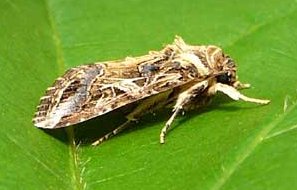Difference between revisions of "Main Page"
(→Summary) |
(→Summary) |
||
| Line 10: | Line 10: | ||
The olfactory system is of significant scientific and socio-economic interest. Although long neglected, the study of olfaction has considerably expanded over the last fifteen years, stimulated by the interest in its molecular and neural mechanisms as well as the potential applications in many areas. Among the latter are the control of insect populations and "artificial noses" (a rapidly expanding area of considerable economic importance). The research in the PheroSys project investigates the principles underlying the superior performance of biological olfactory systems and will provide the basis for novel developments in these fields. | The olfactory system is of significant scientific and socio-economic interest. Although long neglected, the study of olfaction has considerably expanded over the last fifteen years, stimulated by the interest in its molecular and neural mechanisms as well as the potential applications in many areas. Among the latter are the control of insect populations and "artificial noses" (a rapidly expanding area of considerable economic importance). The research in the PheroSys project investigates the principles underlying the superior performance of biological olfactory systems and will provide the basis for novel developments in these fields. | ||
| − | More details can be found in the [[Project | + | More details can be found in the [[Project Summary]] and the [[Scientific Abstract]]. |
== Scientific Abstract == | == Scientific Abstract == | ||
Revision as of 14:00, 27 October 2008
PheroSys: Olfactory Coding in the Insect Pheromone Pathway: Models and Experiments
Summary
The PheroSys project analyzes olfaction, the sense of smell, and uses the moth olfactory brain as a model, because (i) it is relatively simple, (ii) it has been widely described and (iii) it is easily accessible to electrophysiological recordings. Our aim is to understand how sensory information is coded and processed during the detection and processing of odour stimuli, with special emphasis on communication by sexual pheromones.
The olfactory system is of significant scientific and socio-economic interest. Although long neglected, the study of olfaction has considerably expanded over the last fifteen years, stimulated by the interest in its molecular and neural mechanisms as well as the potential applications in many areas. Among the latter are the control of insect populations and "artificial noses" (a rapidly expanding area of considerable economic importance). The research in the PheroSys project investigates the principles underlying the superior performance of biological olfactory systems and will provide the basis for novel developments in these fields.
More details can be found in the Project Summary and the Scientific Abstract.
Scientific Abstract
See PheroSys:About.
Main Aims
About MediaWiki
Consult the User's Guide for information on using the wiki software.

